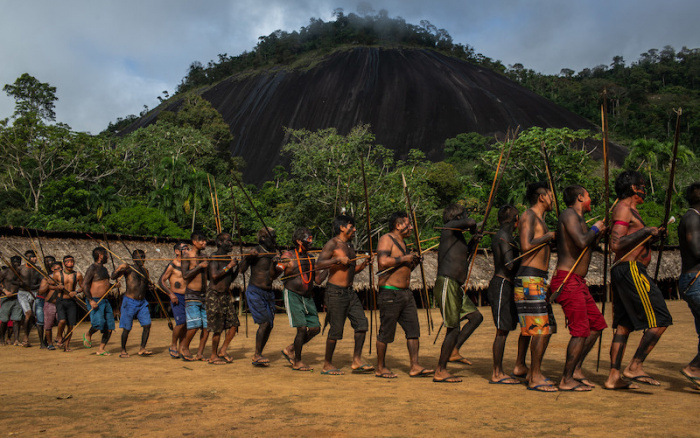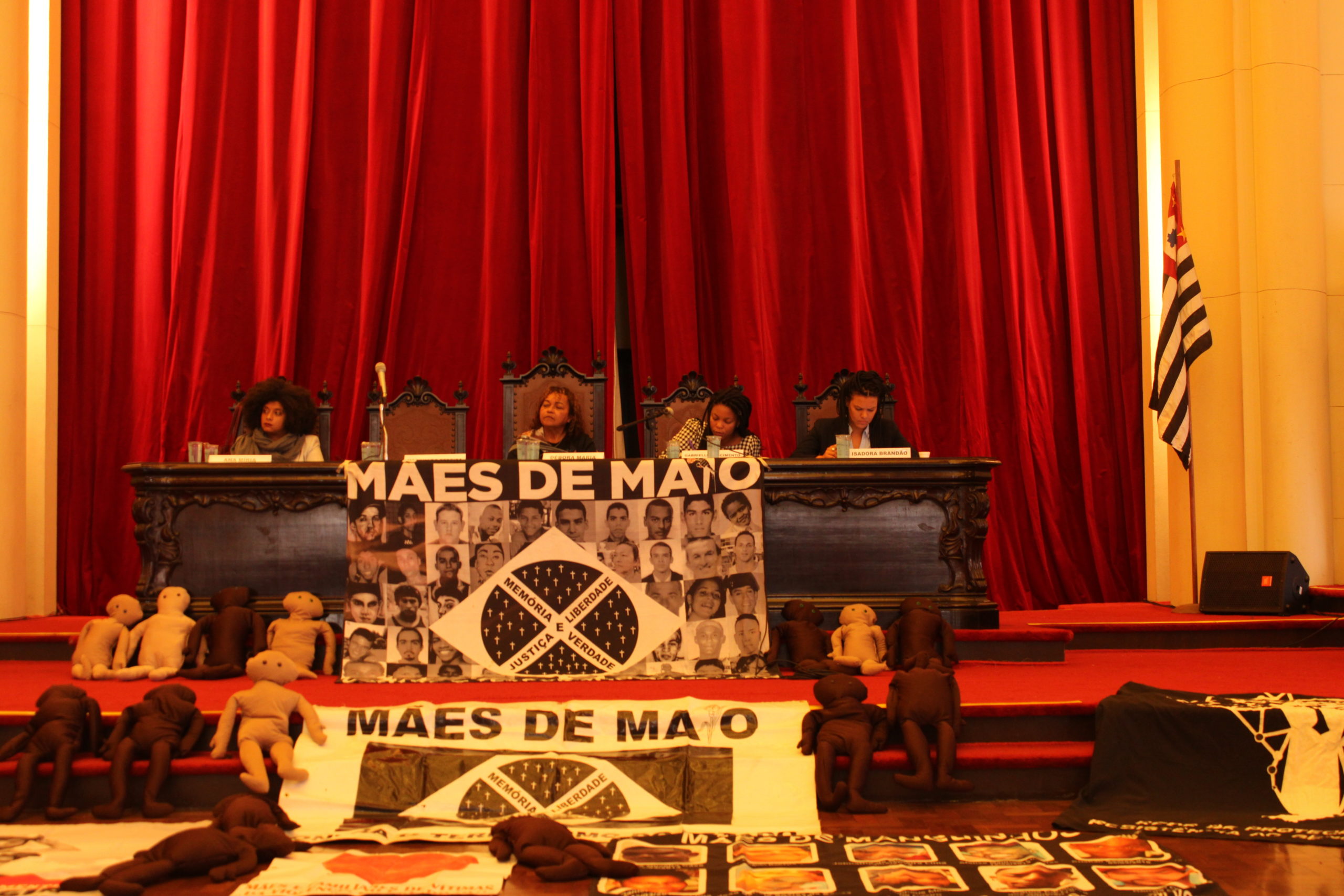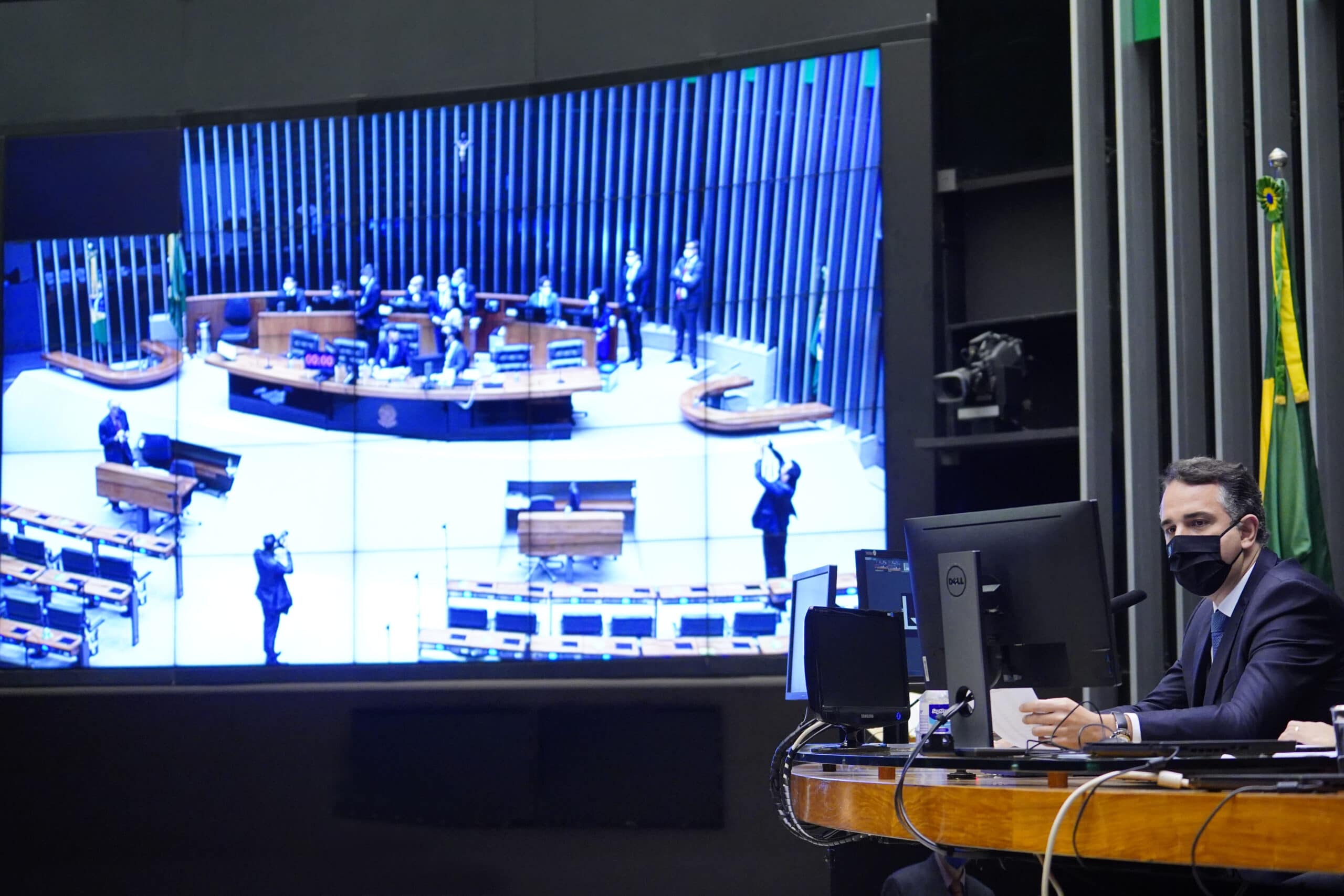A shortcoming shared by various administrations, the land demarcation process was disrupted during social isolation
A shortcoming shared by various administrations, the land demarcation process was disrupted during social isolation

“We have been saying for some time now, if the world does not stop to listen to the warnings that the earth has been sending, then the earth will stop the world to make itself heard. And this is precisely the moment we are at in this pandemic,” said Sônia Guajajara, coordinator of APIB (Association of Indigenous Peoples of Brazil).
The indigenous leader told the newspaper Brasil de Fato that she views with disdain the absence of the State in the combat of coronavirus in indigenous communities.
As a result of this, the organization has had to find some partners on its own to protect native peoples.
Sesai (Special Secretariat of Indigenous Health) has currently registered 380 deaths of indigenous peoples from Covid-19, as well as 23,178 confirmed cases. The data show that mortality from the virus among indigenous peoples is 9.6%, higher than the national average of 5.6%.
Luiz Eloy Terena, legal adviser to APIB, explains that legal action in the Supreme Court was necessary for the Bolsonaro government to adopt urgent measures to contain the spread of the pandemic in indigenous communities.
In a historic victory for indigenous peoples in the Brazilian Judiciary, the federal government was ordered to take urgent measures to reduce the impact of the pandemic on these populations.
Political disregard
The favorable Supreme Court ruling, however, came only after a great deal of pressure. Before the case, President Jair Bolsonaro had issued a measure exempting the public authorities from providing access to drinking water, hygiene and cleaning materials, food staples and internet connection in the communities.
Attempts like this, which represent a disregard for the health, well-being and rights of indigenous peoples, are common in almost all governments.
The interruption of the land demarcation process, just like the easing of environmental protection and oversight rules, are problems that have persisted for years.
According to Cléber Buzatto, deputy secretary of CIMI (Indigenous Missionary Council), it is indigenous peoples who suffer the most from the increased dismantling of programs like Funai (National Indian Foundation).
Among the problems associated with land demarcation, one of the most recent is the construction of the Belo Monte hydropower plant, in the state of Pará. In July 2018, some 756 hectares of forest were cleared in the Ituna/Itatá indigenous land.
Moreover, the construction project had promised ‘Protection Bases’ (for the purpose, among other things, of keeping intruders out) that were never set up, which led to the deforestation of 1,096 hectares inside the Cachoeira Seca do Iriri territory in the first half of 2018 – making it the most deforested indigenous land in recent years.
Size of the indigenous territory
According to a report by the organization ISA (Instituto Socioambiental), there are currently 722 indigenous lands in Brazil at different stages in the demarcation process. Of these, 488 have already been approved by the Presidency of the Republic.
While other indigenous peoples are awaiting the demarcation of their lands and more security in the control of the coronavirus, the pandemic has brought another warning.
Dom Roque Paloschi, president of CIMI, said the period of social isolation has emboldened land-grabbers and miners on land that has already been demarcated, especially in the Amazon region.
According to Paloschi, “[land-grabbers and miners] have taken advantage of the lack of oversight and political and administrative management in the country to continue their illegal activities on indigenous lands”.
Despite the quarantine, Paloschi explained that other factors have contributed to the worsening of the crisis, such as frequent speeches by the current government encouraging intrusions, in addition to proposed legislation.
“Another major concern are the proposals for constitutional amendments and new legislation, such as Bill No. 191/20, which regulates the exploration of mineral, water and organic resources on indigenous reserves,” he said.
According to Funai (National Indian Foundation), until the beginning of August 2020, more than 383,000 baskets of food staples had been distributed to families during the pandemic. The Foundation also ensured that R$16.1 million was invested in land inspections over the past 12 months.


